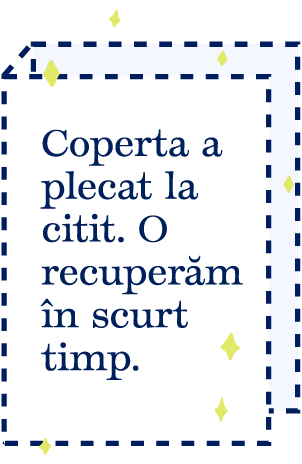TOMER DEVORAH - The Palm Tree of Deborah

TOMER DEVORAH - The Palm Tree of Deborah
Tomer Devorah was written in Hebrew in the middle of the 16th century by Rabbi Moses Cordovero, a Jewish kabbalist in Safed, Israel. This short text deals mostly with the Imitation of God through the acquisition of divine traits, especially those of the sephirot. The first edition was published in Venice in 1588 Tomer Devorah (Hebrew: תומר דבורה, English: The Palm Tree of Deborah) was written in Hebrew in the middle of the 16th century by Moses Cordovero, a Jewish kabbalist in Safed, Israel. This short text deals mostly with the Imitation of God through the acquisition of divine traits, especially those of the sephirot. The first edition was published in Venice in 1588. Although not widely read among Jews today, it is popular in the mussar tradition, which focuses on the individual cultivation of the middot, or qualities of God.
Rabbi Moshe Cordovero Kabbalist Rabbi Moshe Cordovero, also referred to as Ra'MaK, was a leading kabbalist who lived and taught in Tsfat. His best-known work, Pardes Rimmonim, is a systematization of various school of kabbalistic thought. He authored many highly influential works, included a defense of kabbalah, a highly-regarded ethical work based on kabbalistic thought, and a comprehsive commentary on the Zohar. He had many disciples and was considered the premier kabbalistic authority until superceded by Rabbi Yitzchak Luria (AR"I Z"L) shortly after his death.
Rabbi Moses ben Jacob Cordovero was a central figure in the historical development of Kabbalah, leader of a mystical school in 16th-century Safed, Ottoman Syria. He is known by the acronym the Rama"k.
After the Medieval flourishing of Kabbalah, centered on the Zohar, attempts were made to give a complete intellectual system to its theology, such as by Meir ibn Gabbai. Influenced by the earlier success of Jewish philosophy in articulating a rational study of Jewish thought, Moshe Cordovero produced the first full integration of the previous differing schools in Kabbalistic interpretation. While he was a mystic inspired by the opaque imagery of the Zohar, Cordoverian Kabbalah utilised the conceptual framework of evolving cause and effect from the Infinite to the Finite in systemising Kabbalah, the method of philosophical style discourse he held most effective in describing a process that reflects sequential logic and coherence. His encyclopedic works became a central stage in the develo
PRP: 117.49 Lei
Acesta este Prețul Recomandat de Producător. Prețul de vânzare al produsului este afișat mai jos.
105.74Lei
105.74Lei
117.49 LeiLivrare in 2-4 saptamani
Descrierea produsului
Tomer Devorah was written in Hebrew in the middle of the 16th century by Rabbi Moses Cordovero, a Jewish kabbalist in Safed, Israel. This short text deals mostly with the Imitation of God through the acquisition of divine traits, especially those of the sephirot. The first edition was published in Venice in 1588 Tomer Devorah (Hebrew: תומר דבורה, English: The Palm Tree of Deborah) was written in Hebrew in the middle of the 16th century by Moses Cordovero, a Jewish kabbalist in Safed, Israel. This short text deals mostly with the Imitation of God through the acquisition of divine traits, especially those of the sephirot. The first edition was published in Venice in 1588. Although not widely read among Jews today, it is popular in the mussar tradition, which focuses on the individual cultivation of the middot, or qualities of God.
Rabbi Moshe Cordovero Kabbalist Rabbi Moshe Cordovero, also referred to as Ra'MaK, was a leading kabbalist who lived and taught in Tsfat. His best-known work, Pardes Rimmonim, is a systematization of various school of kabbalistic thought. He authored many highly influential works, included a defense of kabbalah, a highly-regarded ethical work based on kabbalistic thought, and a comprehsive commentary on the Zohar. He had many disciples and was considered the premier kabbalistic authority until superceded by Rabbi Yitzchak Luria (AR"I Z"L) shortly after his death.
Rabbi Moses ben Jacob Cordovero was a central figure in the historical development of Kabbalah, leader of a mystical school in 16th-century Safed, Ottoman Syria. He is known by the acronym the Rama"k.
After the Medieval flourishing of Kabbalah, centered on the Zohar, attempts were made to give a complete intellectual system to its theology, such as by Meir ibn Gabbai. Influenced by the earlier success of Jewish philosophy in articulating a rational study of Jewish thought, Moshe Cordovero produced the first full integration of the previous differing schools in Kabbalistic interpretation. While he was a mystic inspired by the opaque imagery of the Zohar, Cordoverian Kabbalah utilised the conceptual framework of evolving cause and effect from the Infinite to the Finite in systemising Kabbalah, the method of philosophical style discourse he held most effective in describing a process that reflects sequential logic and coherence. His encyclopedic works became a central stage in the develo
Detaliile produsului










